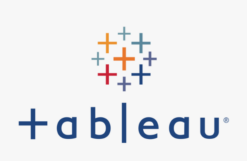Duration: 2 days – 14 hrs
Overview
This course will utilize a variety of proven adult learning techniques to ensure maximum understanding, comprehension, and retention of the information presented. This includes facilitator-led discussions, small group discussions, presentations, and role-playing exercises.
In today’s changing world, event & meeting management professionals are expected to have the skills necessary to plan and execute both live and virtual events. This course is designed for industry professionals who are looking to build on their existing event management skillset and experience by learning the fundamentals needed to plan and manage both live and virtual events.
Format
- Lecture and workshop
- Blended
Objectives
- Strategic Events Planning and Execution Workshop will enable you to use behavioral insights and discover the human factor in both live and virtual events.
- Develop SuCCCCCess Skills: Collaboration, Communication, Critical Thinking, Creativity, and Clarity.
- People can learn how to use the Design Thinking Process to create value.
- Empower people to become the best versions of themselves.
- Articulate the key differences between planning a live and a virtual event
- Develop a strategy that includes key components unique to planning and execution.
- In this course, your participants will be able to:
- Define strategic event and project management planning.
- Define steps in strategic event management, planning, and executing.
- Identify gaps in the process of planning and execution.
- State the vision, mission, and values of planning events.
- Design a project to identify risks.
- Prepare and present a mock project plan.
Audience
- This course is suitable for a wide range of professionals but will greatly benefit.
- This program is designed for anyone who is interested in live and virtual events planning and would like to acquire skills to develop innovative and creative solutions that are based on user needs.
Pre- requisites
- none
Course Content
In this detailed course outline, we will cover the before, during, and after the events management and execution.
Module 1: BEFORE Lesson 1: EMPATHY – Introduction & Strategic Planning
Understanding the key differences between in-person, hybrid, and virtual events
- Types of events including; online events, online meetings, education sessions, webinars, and more
- Developing a strategy for; Setting goals and objectives; Reviewing revenue and marketing strategy; Sponsorship & advertising strategy; Ticket sales; Content strategy
- Understanding your audience (technological limitations, experience, and strengths)
DEFINE – Staffing, Vendors, Marketing & Sponsorship
- Determining your staffing and vendor needs
- Sourcing subject matter experts
- Preparing and training subject matter experts for digital delivery of their content and presentations
- Setting up a support strategy for attendees, vendors, speakers, and staff (so people can get help fast when they need it, and it doesn’t distract from the event – phone, email, live chat, text, help center pages, etc.)
- Making the switch from in-person to virtual without losing your audience
- Demonstrating the value of the event
- Marketing yourself to differentiate from the competition including free alternatives such as YouTube and Facebook
Module 2: DURING Lesson 3: IDEATE – Developing an Event Program
- Developing a marketing plan (and how it may be different than an in-person event)
- Keeping attendees engaged through strategically planned activities and initiatives including polls, virtual hosts, and quality production
- Establishing social etiquette and norms
- Developing a frustration-free, easy to use digital environment including navigation, schedules, registration, etc.
- Ideas for event formats (types of options available – social, networking, education, entertainment, roundtable, forums, etc.)
- Creating opportunities for people to connect similarly to in-person events
- Developing a program with the human component in focus (scheduling breaks, opportunities for questions and engagement, variations of delivery formats/styles, virtual breakout rooms, networking, timed meeting rounds, etc.)
- Understating the basic psychology of how people consume content, engage, learn, and the effect on their retention and engagement
- Event program alternatives: Expos and tradeshows, entertainment events, fundraisers, etc.
- Risk management/analysis and contingency plans
Module 3: AFTER
- Archiving
- Nurturing the participants for continuous engagement
- Developing Handouts and Certificate
- Learning Session Process
Module 4: PROTOTYPE Event Technology
- Understanding the various technological options available from small to large events (streaming, full virtual conference apps, internet and bandwidth, encoding, video conferencing such as zoom, online sales pages, registration, payment gateways, metrics, data collection, etc.)
- Preparing your presenters (what technology options do they have / what do you require – for example, Skype vs. studio with professional cameras – audio, video gear, lighting, backdrops, etc.)
- Technology limitations
- Technological risk management, redundancy, and backup plans
- Technology considerations for the home or small office virtual event studio
Module 5: TEST Event Execution
- Production schedules in the virtual event environment
- Team communication
- Managing vendors, speakers, and support teams
- Coordinating virtual sessions and activities
- Monitoring activities including attendance, engagement, complaints, questions, technical glitches/quality, content delivery, etc.
- Post-event management activities (and how they might be different from an in-person event)
- Putting it all together / developing the overall virtual event plan
- Virtual event plan components
- Communicating your plan to stakeholders
- Closing and Remarks








